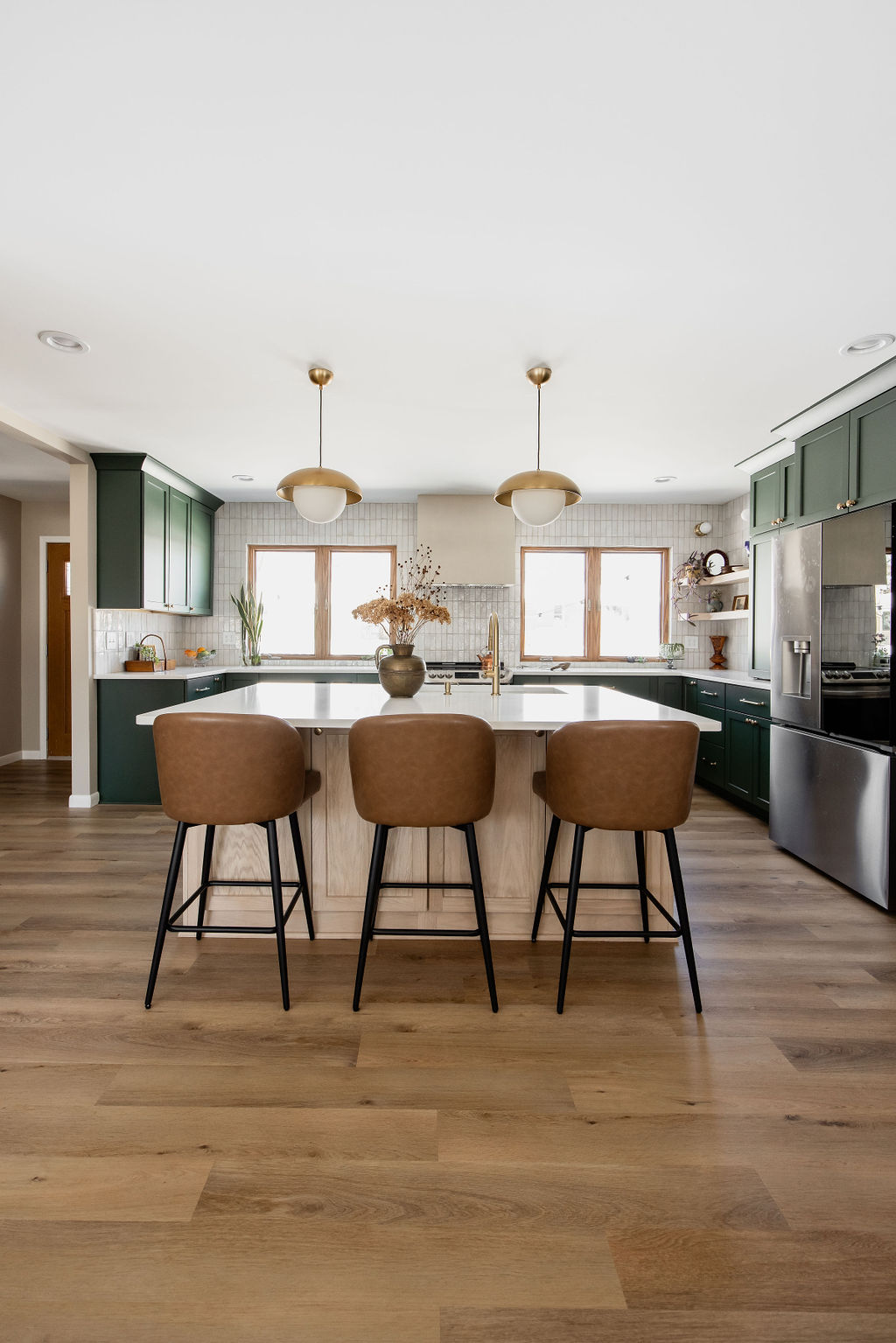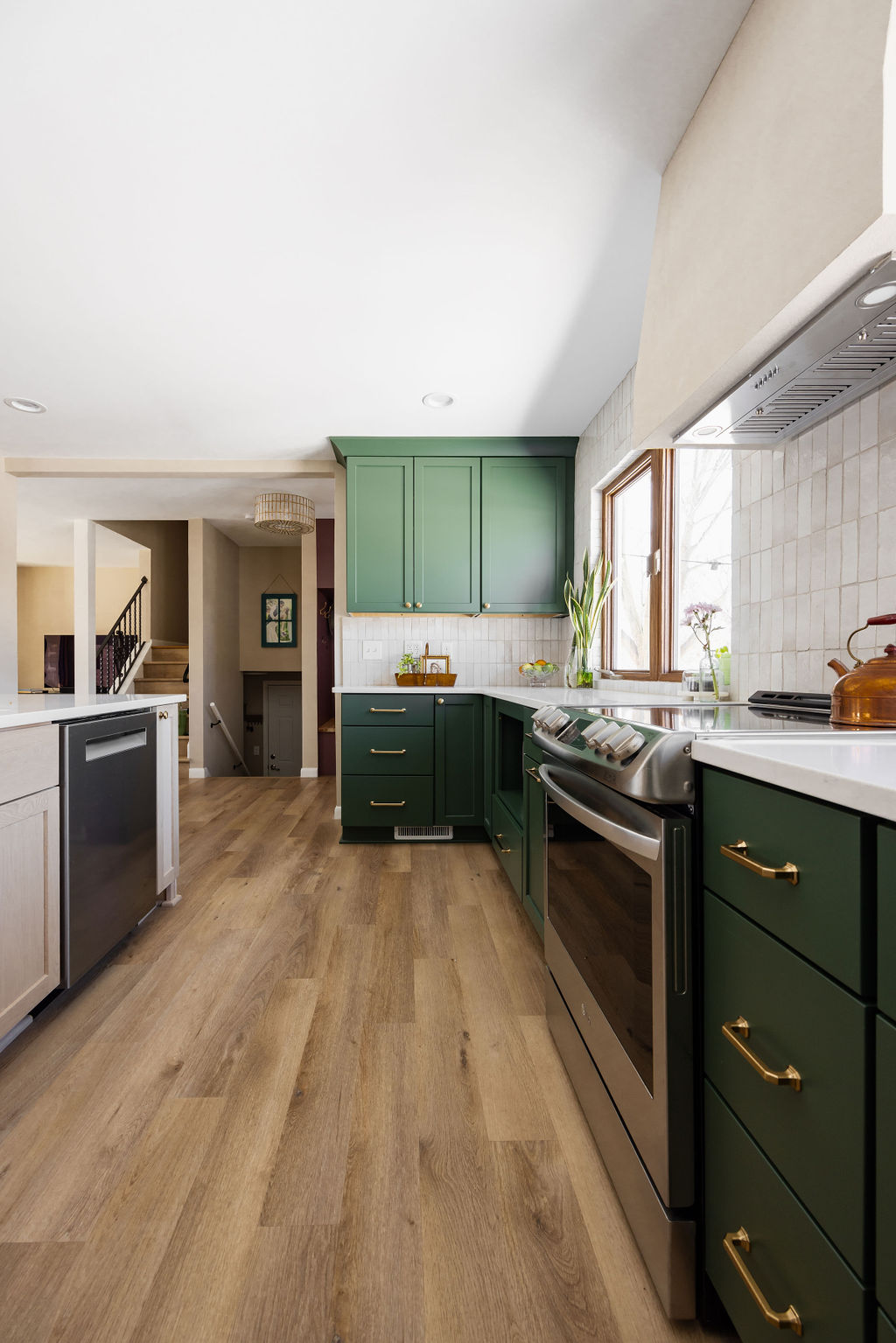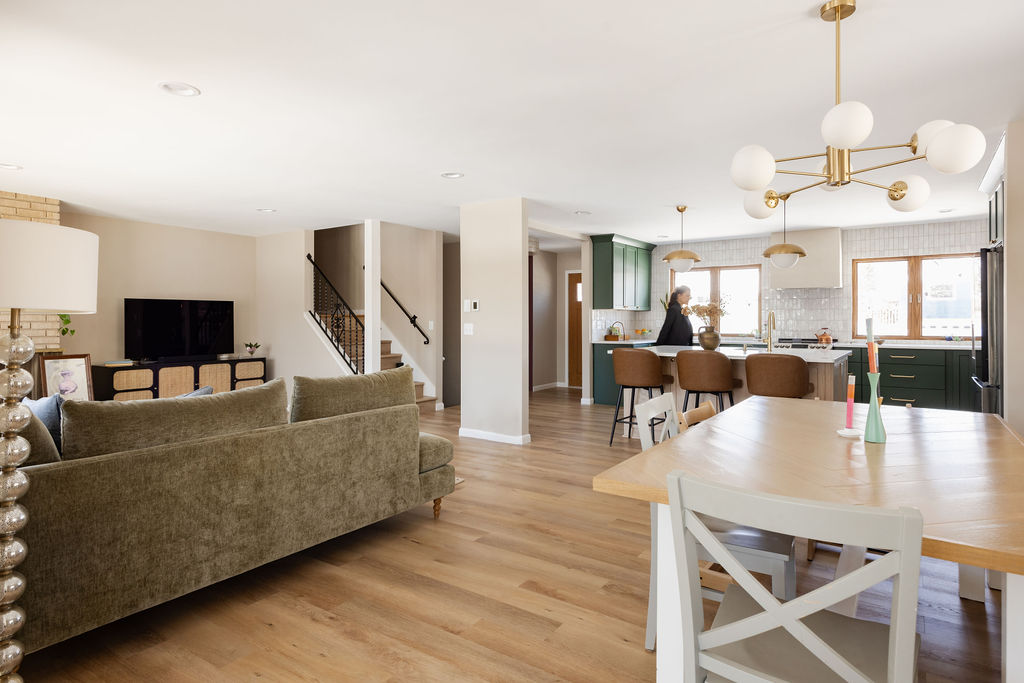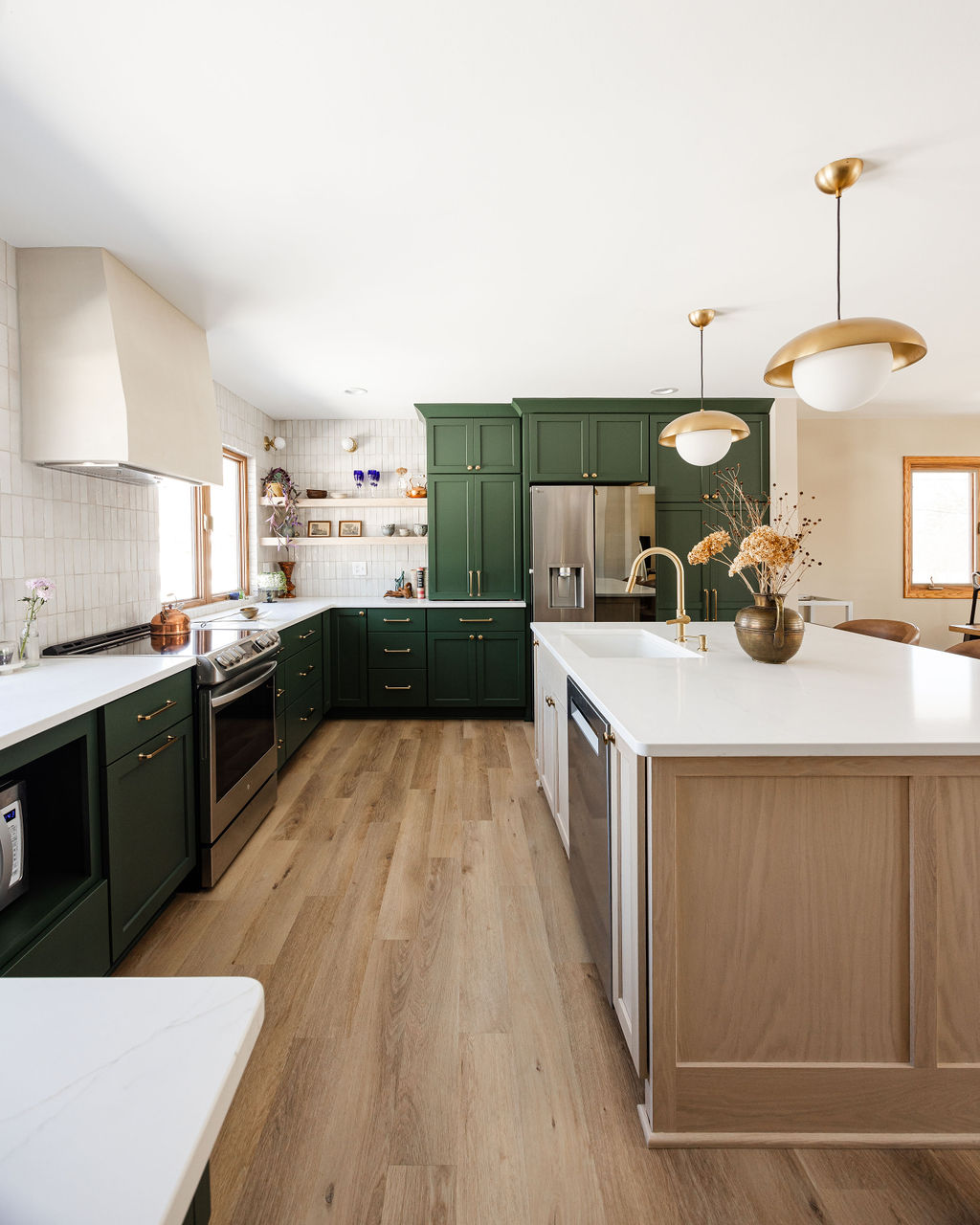Finding the Perfect Kitchen Flooring
When it comes to remodeling your kitchen, the flooring you choose can make or break the space. The right kitchen flooring not only complements your style but also stands up to heavy foot traffic, spills, and daily wear and tear. At Moonstone Design & Build, we understand that picking the perfect flooring can be overwhelming with so many options available. This guide will walk you through the most popular kitchen flooring choices, highlighting their pros and cons to help you make an informed decision that suits your needs and lifestyle.
Hardwood Flooring: Classic and Timeless
Pros of Hardwood Flooring
Hardwood flooring offers a timeless, classic look that never goes out of style. Here’s why it’s a favorite among homeowners:
- Durability: High-quality hardwood can last for decades if maintained properly.
- Aesthetic Appeal: Adds warmth and elegance to your kitchen, enhancing its overall appearance.
- Value Addition: Hardwood floors can increase the resale value of your home.
Cons of Hardwood Flooring
Despite its many benefits, hardwood flooring has its downsides:
- Susceptibility to Moisture: Water spills can cause warping or staining if not cleaned up promptly.
- Maintenance: Requires regular refinishing and sealing to maintain its appearance.
- Cost: Generally more expensive compared to other flooring options.

Tile Flooring: Versatile and Durable
Pros of Tile Flooring
Tile is a versatile option that comes in various styles and materials. Here’s why tile might be the right choice for your kitchen:
- Water Resistance: Ideal for kitchens where spills are common. Ceramic and porcelain tiles are particularly resilient to moisture.
- Low Maintenance: Easy to clean and does not require frequent upkeep.
- Variety: Available in numerous colors, patterns, and textures to match any design scheme.
Cons of Tile Flooring
While tile offers many benefits, it also has some drawbacks:
- Hardness: Can be uncomfortable to stand on for long periods, and dishes can break if dropped.
- Cold Surface: Tiles can feel cold underfoot, which might be uncomfortable in colder climates.
- Installation: Requires professional installation, which can add to the overall cost.
Vinyl Flooring: Affordable and Practical
Pros of Vinyl Flooring
Vinyl flooring is a popular choice for many kitchens due to its practicality:
- Cost-Effective: Generally less expensive than hardwood or tile options.
- Waterproof: Excellent choice for kitchens prone to spills and moisture.
- Comfort: Softer underfoot compared to tile, and less likely to cause injury if something falls.
Cons of Vinyl Flooring
Despite its practicality, vinyl flooring has some limitations:
- Durability: Can wear down over time, especially in high-traffic areas.
- Appearance: May not offer the same upscale look as hardwood or high-end tile.
- Environmental Impact: Some vinyl products may contain harmful chemicals and are not always eco-friendly.

Laminate Flooring: Stylish and Budget-Friendly
Pros of Laminate Flooring
Laminate flooring offers an attractive alternative to traditional materials:
- Affordability: Often less expensive than hardwood or high-end tile.
- Ease of Installation: DIY-friendly, with many options featuring click-together installation systems.
- Variety: Available in a wide range of styles and colors, including options that mimic wood and stone.
Cons of Laminate Flooring
However, laminate flooring has its own set of challenges:
- Susceptibility to Moisture: Not as water-resistant as vinyl or tile; can warp if exposed to excessive moisture.
- Durability: While it resists scratches and dents better than some materials, it can still be damaged.
- Resale Value: Typically doesn’t add as much value to a home as real hardwood or high-quality tile.
Cork Flooring: Eco-Friendly and Comfortable
Pros of Cork Flooring
Cork flooring is an eco-friendly option with several unique advantages:
- Comfort: Soft underfoot, making it comfortable for standing and walking.
- Insulation: Provides good insulation, both thermal and acoustic.
- Eco-Friendly: Made from renewable cork oak bark, which is a sustainable material.
Cons of Cork Flooring
Despite its benefits, cork flooring has some limitations:
- Maintenance: Needs to be sealed regularly to protect against moisture and wear.
- Fading: Can be prone to fading if exposed to direct sunlight.
- Cost: Can be more expensive than some other budget-friendly options.
Concrete Flooring: Modern and Industrial
Pros of Concrete Flooring
Concrete flooring is becoming increasingly popular for its modern look and durability:
- Durability: Extremely tough and resistant to wear and tear.
- Customizable: Can be stained, polished, or textured to fit various design preferences.
- Low Maintenance: Easy to clean and maintain.
Cons of Concrete Flooring
However, concrete flooring also has some downsides:
- Cold and Hard: Can be uncomfortable to walk on and feels cold in cooler weather.
- Cracking: Can develop cracks over time if not properly installed or maintained.
- Installation: Requires professional installation, which can be costly.

Choosing the Right Kitchen Flooring
Choosing the right kitchen flooring is crucial for both the functionality and aesthetics of your space. Whether you opt for the classic elegance of hardwood, the versatility of tile, the practicality of vinyl, or the modern edge of concrete, each flooring type has its unique benefits and drawbacks. Consider your budget, lifestyle, and design preferences when making your decision. At Moonstone Design & Build, we’re here to help you navigate these options and find the perfect flooring to transform your kitchen into a space you’ll love.
FAQs – Kitchen Flooring Materials
1. What is the most durable kitchen flooring option?
Tile and concrete are among the most durable flooring options, offering long-lasting performance even in high-traffic areas.
2. How do I maintain hardwood flooring in my kitchen?
Regular cleaning with a dry or slightly damp mop and periodic refinishing can help maintain the beauty of hardwood flooring.
4. Is cork flooring a good option for kitchens?
Cork flooring is comfortable and eco-friendly but requires regular sealing to protect against moisture and wear.

see comments
close comments